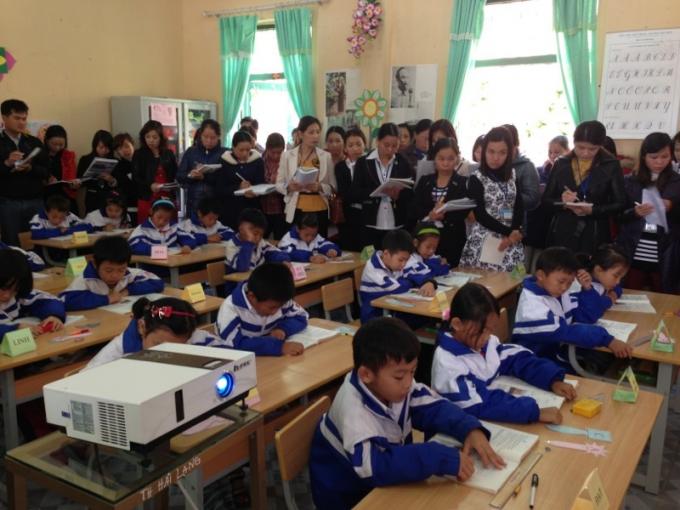Evaluating teachers through children learning activities
Evaluating teachers through children’s learning activities and their responses to lesson questions is a Save the Children’s initiative to improve the quality of education and to prevent the negative impact of teacher’s evaluation process in Vietnam.
Different from the conventional evaluation method which bases on the teacher’s performance, the teacher’s approach and narration of lessons in the class, the new approach focuses on the children’s participation, the children responses to the lesson and the flexibly learning environment. Instead of rating teacher, this initiative encourages constructive feedbacks and open discussion with a teacher from those who view his/her class in order to help the teacher to develop teaching methods which are more helpful and suitable for different children.

The initiative as a part of Save the Children’s project “Closing Educational Disparities for Disadvantaged Children in Vietnam through Increasing Access to Quality Basic Education” funded by IKEA Foundation is piloting in Lao Cai, Quang Ninh and Quang Tri where there is a high proportion of ethnic minority children.
A workshop to review and share experience was organized in Tien Yen District in Quang Ninh Province on 26th November. More than 40 school principals and education officials had the opportunity to discuss the challenge and advantage of the new method and the possibility of replication in other schools.
Tien Yen is a mountainous district with 50 percent of population from ethnic minority groups. Save the Children began to support the improvement of education quality for ethnic minority children in Tien Yen in early 2000s through training teachers, upgrading schools, creating child friendly learning environment and community development.
The initiative has been implemented in Thi Tran Primary School and Tien Lang Primary School where 100 per cent of children come from ethnic minority population. Recently, the district education authorities have decided to replicate it in four other schools including Hai Lang, Dong Ngu1, Dong Hai and Yen Than.
“Initially, we were confused with the new method. After trainings, we understood and found it very useful. It makes teachers more open through professional discussions and more flexible in teaching different children, said Duong Thi Huong - Vice Principal of Tien Lang Primary School in Tien Yen District, Quang Ninh Province.
 Vietnam
Vietnam